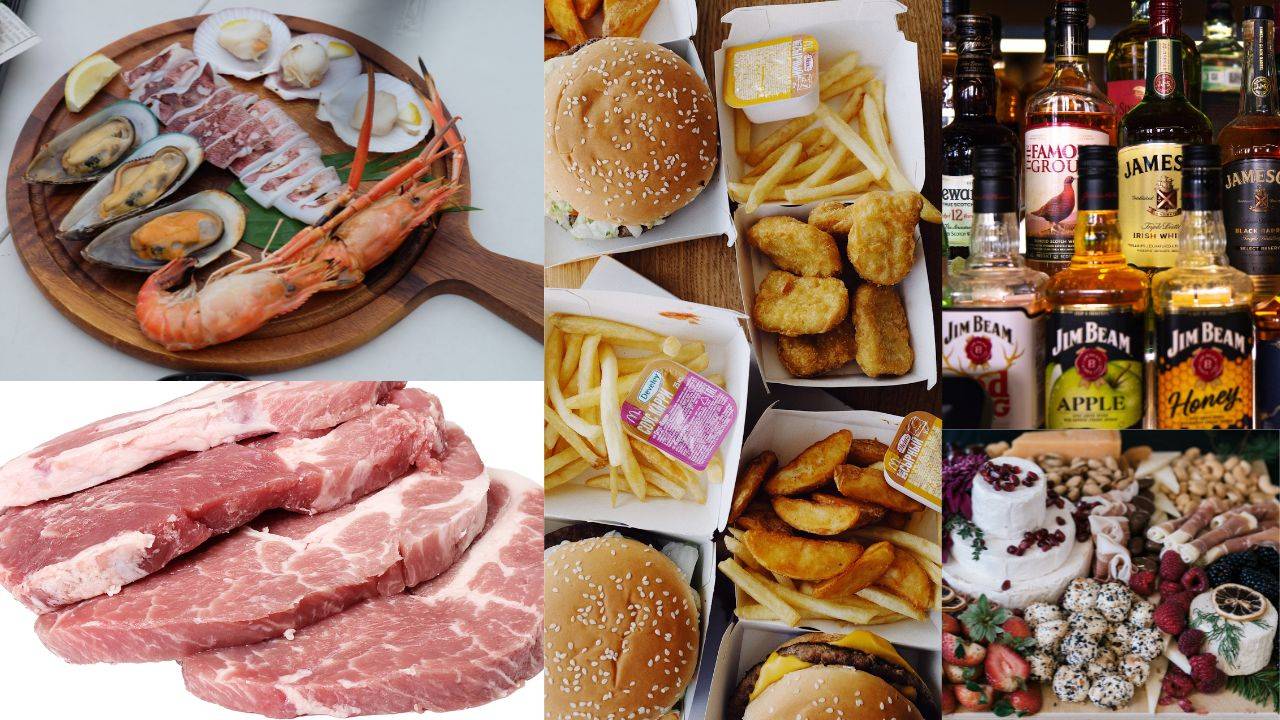
Uric acid, a naturally occurring compound in our bodies, plays a significant role in our overall health. However, when its levels skyrocket, it can lead to a painful condition known as gout.
Gout is often referred to as the "disease of kings" due to its historical association with rich and indulgent diets. In this article, we'll explore the connection between uric acid and gout, and identify some common culprits among the foods that can elevate uric acid levels in your blood.
-
Red Meat
Red meat, including beef, lamb, and pork, is a major player in raising uric acid levels. It's rich in purines, compounds that our body breaks down into uric acid. When you consume excessive purines, uric acid levels can soar, leading to gout flare-ups. If you're a meat lover, consider moderating your intake or opting for leaner cuts.
-
Seafood
Certain types of seafood, such as sardines, mackerel, and anchovies, contain substantial purine levels. Though fish provides essential nutrients, overindulgence may push uric acid levels into the danger zone. If you're a seafood enthusiast, try balancing your diet with low-purine choices like salmon or cod.
-
Organ Meats
Liver, kidney, and other organ meats are rich in purines and should be consumed sparingly by individuals prone to gout. The organs play a vital role in processing waste products like uric acid, so their consumption can directly influence your body's uric acid levels.
-
Sugary Delights
Sugary beverages, especially those sweetened with fructose, have been linked to increased uric acid levels. High fructose consumption can lead to insulin resistance, which can impact uric acid regulation in the body. Reducing sugary drinks in your diet is a step in the right direction.
-
Alcohol
Alcohol, especially beer, can have a dual impact on uric acid levels. On one hand, it can inhibit uric acid excretion, while on the other, it promotes the breakdown of purines into uric acid. Wine and spirits are generally considered better choices for gout sufferers, but moderation is essential.
-
Processed Foods
Processed foods often contain high levels of salt and preservatives, which can lead to increased uric acid levels. These hidden culprits can be found in canned soups, instant noodles, and fast food, so it's advisable to opt for whole, unprocessed foods whenever possible.
-
High-Fructose Corn Syrup
High-fructose corn syrup, commonly found in sugary snacks and sweetened drinks, is another significant contributor to elevated uric acid levels. This sweetener can disrupt your body's ability to regulate uric acid, making it wise to check labels for its presence.
Thus, by making informed food choices and maintaining a balanced diet, you can reduce the risk of elevated uric acid levels and the associated pain of gout attacks. Remember, moderation is key, and consulting with a healthcare professional can provide you with personalized guidance on managing uric acid levels for your specific needs.
















